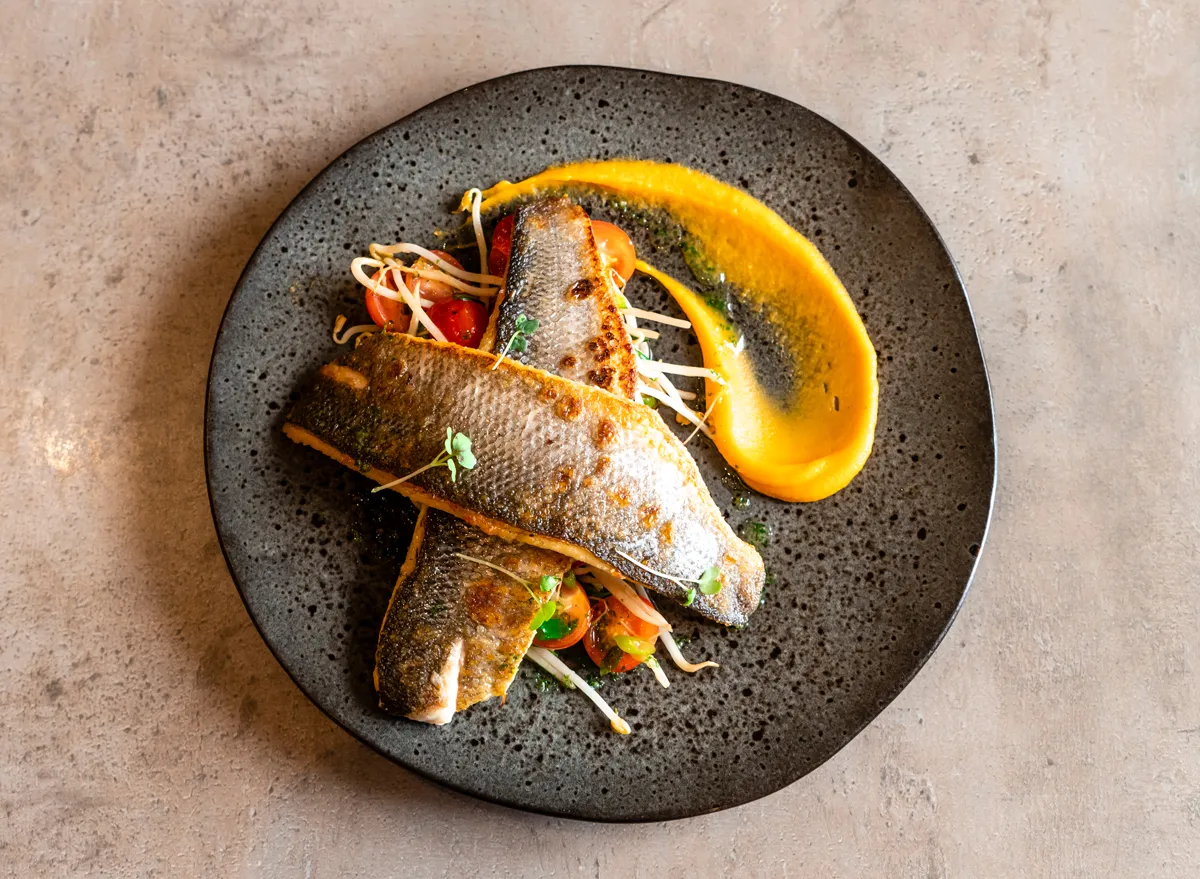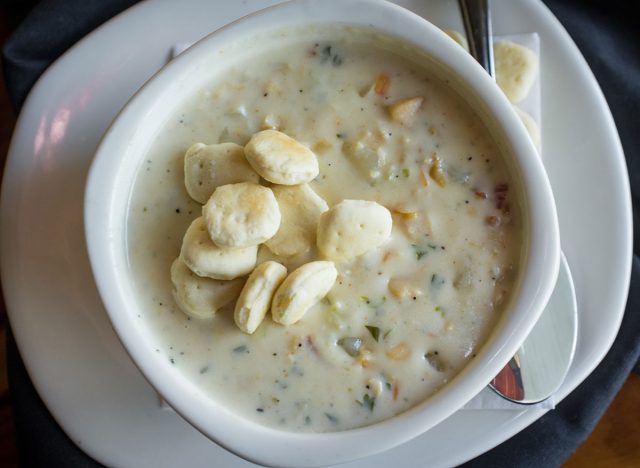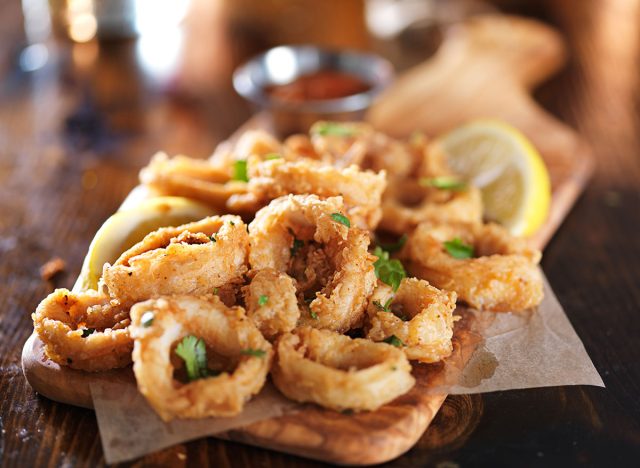The #1 Dish to Avoid at a Seafood Restaurant, According to Chefs

There are at least three good reasons to eat seafood. For one, there is a wide variety of fish and crustacean species to choose from. For another, they don’t need complicated techniques or ingredients to accompany them; they can be served simply or flavored with almost any kind of seasoning. Last but not least, they provide a wide range of nutritional benefits. For example, fish are the top food sources of omega-3 fatty acids, nutrients that are linked to brain health, lower heart disease risk, and more. Basically, seafood is a great addition to your diet. But seafood is also a menu category that can be dicier than the rest because its freshness and quality need to be at their peak.
For example, one of the most popular seafood items you’ll find on menus across the country—the clam chowder—can often contain some sub-par ingredients. Specifically, clam chowder almost never uses fresh clams and heavily relies on canned ones. “[Clam chowder] may be considered the lowest quality menu item at a seafood restaurant because the clam chowder is sometimes made from canned clams,” says Chef Rusty Hansen.

While there’s nothing wrong with using canned ingredients, the quality of canned clams, in particular, is questionable. A July 2022 report by the Food and Drug Administration, as reported by the Environmental Working Group (EWG), showed that canned clams had high levels of perfluorooctanoic acid (PFOA), one of the most common members of a group of toxic, manmade “forever chemicals” known as PFAS that break down slowly over a long time. The chemical is also considered to be “possibly carcinogenic to humans” based on limited evidence that it is linked to testicular and kidney cancer risk, according to the American Cancer Society.
The levels of PFOA were so high in one brand’s canned clam product that the company issued a voluntary recall in response to the findings.
Based on the high levels of PFAS, the FDA warned people to reduce their consumption of canned clams to no more than 10 ounces per month; however, the government body also noted that seafood as part of a healthy diet, “provides many nutritional benefits that for children include brain development and boosted immune system, and for adults, heart and bone health benefits, as well as help in reducing the risk of certain cancers,” so you do not need to cut out seafood from your diet completely.
Another item that veteran chef and current CEO of Griddle King, Michael East, believes is best skipped is the fried calamari.

“Personally, one of my favorite seafood items to cook has always been calamari,” he starts. “When I make it myself, I take great care to make sure the squid is cooked properly and doesn’t come out all rubbery and chewy. I also season the batter carefully to give the dish some depth of flavor, rather than being a bowl of bland, brown food.”
While this is the golden standard in preparing fried calamari, Chef East says this is not the way all restaurants do it.
“Every time I order this item in a restaurant, it seems like the chef hasn’t taken these steps to ensure the calamari actually tastes good. It always seems to be undercooked, leaving the squid rubbery, or overcooked, in which case the batter is way too hard and crunchy.”
But despite the poor preparation and occasional lack of taste, old habits die hard, as East says he still orders this item pretty often.
“While I wouldn’t say this is the worst seafood menu item, it’s definitely the one that most chefs seem to get wrong, in my opinion.”









